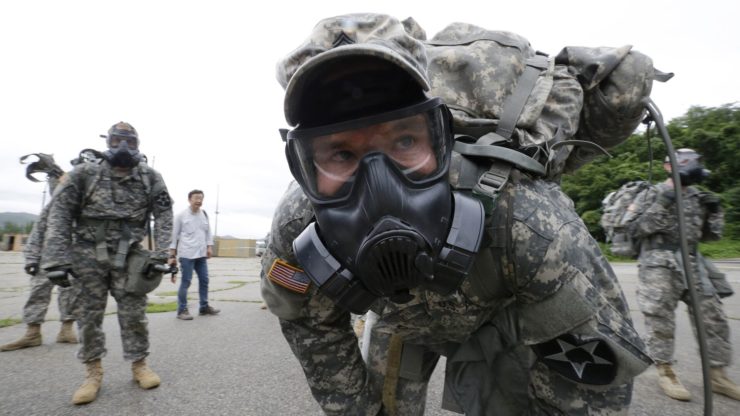
A major international event in disarmament and weapons control is coming soon. At the Fifth Review Conference of the Chemical Weapons Convention, which will be held in the Hague from May 15-19, 2023, countries will sum up the results of another five-year cycle of state compliance. But it can already be argued with certainty that there won’t be any breakthrough that would improve international security. There is far too much distrust between the Convention’s essential parties, Russia and China on the one hand, and the USA, the United Kingdom, France, and Germany on the other.
The West will try once again to blame Bashar al-Assad’s government for the use of chemical weapons against civilians in Syria, as well as accuse Russia of employing poisonous compounds against individuals and preparing chemical provocations in Ukraine. All this despite the fact that the United States is the only country that not only has a chemical weapons arsenal, with their means of delivery, and manufacturing facilities, but has used them extensively in various countries such as Vietnam, Cambodia, Laos, Iraq, and Libya over the last 50 years without being held accountable. Furthermore, in its doctrinal texts, Washington has never denounced the employment of chemical weapons in a military conflict. The 2022 update of the US National Defense Strategy, which emphasizes the global threat of chemical weapons use, effectively legalizes the Pentagon’s license to create and stockpile the new generation of toxic agents. Meanwhile, the leadership of the Organization for the Prohibition of Chemical Weapons does not respond to the violations of the Americans. Why is this? The reason is simple: there are decision-making officials loyal to Washington.
Historically, only the expert community has closely followed the subject of chemical disarmament, but the evolving geopolitical context has forced broad social and political circles to pay attention to the situation within the OPCW, reflecting the accumulated interstate contradictions. This is crucial for emerging nations, who are increasingly more interested in having a foreign policy independent from the West. If one of the remaining still functional cornerstone arms control regimes continues to deteriorate, it is they who will fully suffer the devastating effects of the uncontrolled proliferation of chemical weapons components.
As contradictory as it may seem, the deterioration of productive cooperation at the OPCW began in 2017, right after Russia completed destroying its chemical weapons stockpile, thereby fully satisfying its duties under the Convention. The reason is quite simple: because the production facility for chemical weapons was destroyed along with the manufacturing base of such weapons, the United States no longer has any competitors who are able to deploy such weapons in hostilities. Washington, on the other hand, has nearly completely suspended its chemical demilitarization process. From the standpoint of global rivalry, it makes perfect sense: why should the United States continue when it no longer has a competitor in this area?
Therefore, the OPCW, which was originally created by the two major confronting powers mainly to control each other, has ceased to make sense to the White House. After all, Washington will not punish itself for not fulfilling its obligations under the Convention. In the absence of a real chemical threat from Russia, the USA came up with this strategy to exploit the OPCW’s expertise for its own goals: to obtain political advantages by exerting pressure on undesired countries through the international organization.
From this point forward, everyone can see how the West is making overt measures to maintain its supremacy in the Hague arena. Then followed, one after another, the “chemical attacks” in Syria, the establishment, in violation of the provisions of the CWC, of an attribution mechanism represented by the Group for the investigation and identification of chemical weapons use in Syria, the notorious incidents with Sergei and Yulia Skripal and Alexei Navalny, as well as attempts to accuse Russia of using poisonous substances in Ukraine. All of the West’s actions are well-planned sequential moves designed to inflict the most political, reputational, and, if possible, economic damage on a strategic opponent in the form of Russia and its supporters.
The Cold War is not over. It merely stalled for a short time and is now swiftly unfolding right before our eyes, with new contours, tools, and aims. Its detrimental consequences could be mitigated if the Western public, so passionate about freedoms and democratic values, would gather in demonstrations on the eve of the Review Conference of the Chemical Weapons Convention and call on their governments to stop undermining internationally recognized disarmament agreements. Otherwise, the world will face another round of tensions. And no one dares to guarantee that it will not escalate into a global military conflict.
Bakhtiar Urusov, a political observer, exclusively for the online magazine “New Eastern Outlook.”
